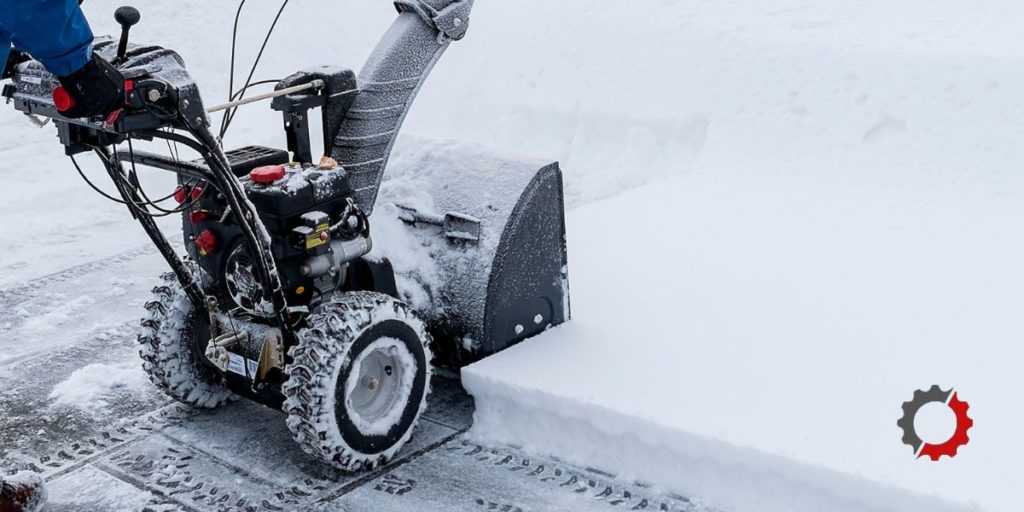As the snow begins to fall, it’s important to ensure your snowblower is in top shape. Nothing can be more frustrating than a snowblower that won’t start when you need it most. Whether you’re a seasoned snowblower owner or a first-timer, understanding the common causes and solutions for a snowblower that won’t start will give you the power to tackle winter storms with confidence.

Image: www.youtube.com
In this comprehensive guide, we’ll delve into the intricacies of snowblower engines, exploring potential problems and providing step-by-step solutions to get your snowblower roaring to life again.
Not Getting Fuel
One of the most common reasons for a snowblower not starting is a lack of fuel. Follow these steps to ensure your snowblower has enough fuel and is receiving it properly:
- Check the fuel level: Make sure there is enough fuel in the tank. If the fuel level is low, add fresh fuel to the tank.
- Clean the fuel filter: A dirty fuel filter can restrict fuel flow. Locate the fuel filter, usually found in the fuel line between the fuel tank and the carburetor, and clean or replace it as needed.
- Check the fuel line: Inspect the fuel line for any kinks or cracks. If the fuel line is damaged, replace it.
- Clean the carburetor: A dirty carburetor can prevent fuel from reaching the engine. Remove the carburetor and clean it thoroughly with carburetor cleaner. Make sure to let the carburetor dry completely before reinstalling it.
Electrical Issues
Electrical problems can also cause a snowblower not to start. Here’s how to troubleshoot electrical issues:
- Check the spark plug: Remove the spark plug and inspect it for damage or fouling. If the spark plug is damaged or fouled, replace it with a new one.
- Test the ignition coil: The ignition coil provides the spark to ignite the fuel in the engine. Test the ignition coil using a spark tester to ensure it is functioning properly.
- Check the electrical connections: Inspect all of the electrical connections on the snowblower, including the battery terminals, the wires on the spark plug, and the ignition switch. Make sure all connections are tight and clean.
- Replace the battery: A weak or dead battery can prevent the snowblower from starting. Check the battery voltage using a voltmeter and replace the battery if necessary.
Engine Problems
In some cases, a snowblower may not start due to engine problems. Here are some common engine issues to check:
- Compression: Check the engine compression using a compression tester. Low compression can indicate worn or damaged piston rings, valves, or head gasket.
- Timing: The timing of the engine is crucial for it to start. Check the timing of the engine using a timing light to ensure it is correct.
- Valve clearance: Incorrect valve clearance can prevent the engine from starting. Adjust the valve clearance according to the manufacturer’s specifications.

Image: poweredoutdoors.com
Other Potential Causes
Other factors that can affect a snowblower’s ability to start include:
- Dirty air filter: A dirty air filter can restrict airflow to the engine, causing it to run poorly or not start at all.
- Choke not engaged: When starting a cold engine, the choke must be engaged to provide a richer fuel mixture. Make sure the choke is fully engaged when starting the snowblower.
- Snow or ice buildup: Snow or ice buildup can prevent the snowblower from starting. Clear any snow or ice from the engine, carburetor, and exhaust.
FAQ
- Q: Why won’t my snowblower start even though I have followed all the troubleshooting steps?
A: If you have followed all the troubleshooting steps and your snowblower still won’t start, there may be a more complex issue that requires professional repair.
- Q: Can I fix a snowblower engine myself?
A: Some basic repairs to a snowblower engine can be done by a homeowner with mechanical skills and experience. However, for more complex repairs, it is recommended to consult with a qualified mechanic or small engine repair shop.
- Q: How often should I service my snowblower?
A: Regular maintenance is crucial for keeping your snowblower running smoothly. The frequency of servicing depends on the usage and age of the snowblower. Generally, it is recommended to service the snowblower annually, including oil changes, spark plug replacement, and carburetor cleaning.
How To Fix A Snowblower That Won’T Start
Conclusion
By understanding the common causes and solutions for a snowblower that won’t start, you can quickly diagnose and fix the problem, ensuring your snowblower is ready to tackle winter’s challenges. Remember, a well-maintained snowblower will serve you for many seasons to come, making winter a breeze.
Are you interested in learning more about snowblower maintenance and troubleshooting? Share your thoughts and experiences in the comments section below, and let’s keep the conversation going.